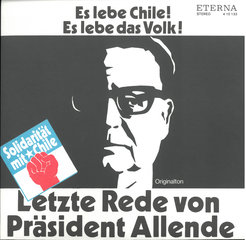The European Movement for Solidarity With Chile After 11 September 1973. Political Emotions and Transnational Mobilization
Caroline Moine

Historians have recently shown an increasing interest in researching forms of international solidarity after 1945. Mobilization against the regime of the Chilean military junta who seized power in the coup d’état of 11 September 1973 constitutes an important case study as a central element of European and global history. The history of the coup and the international response to it have become one of the primary pillars of the European left’s grand narratives, reinforcing a pathos that colors the remembrance of activists. Historians thus have to take care to distance themselves from this mythological perspective in order to situate the history of international solidarity with Chile at the intersection of the history of emotions, the history of social movements, and the history of human rights advocacy. Only then can historians critically question the supposition that the reception of news from Santiago was sufficient for setting off a spontaneous, unifying feeling and wave of international solidarity.
In order to probe the forms and evolution of emotional expression, the project first explored the discursive strategies employed to give the struggle for solidarity with Chile an emotional charge on an transnational level: the use of media (radio, posters, film, mural painting) and medial practices (concerts), as well as the cultivation of collective emotions, especially of a religious character. Secondly, it analyzed the development of new transcontinental networks through biographies of European and non-European activists engaged in the solidarity movement, thus uncovering a range of different forms of mobilization from the local to the international level. Finally, the research involved a long-term study so as to provide a comparative approach from a spatial and temporal point of view, going beyond the sole context of the Cold War.
The results of these 2 years of research have led to a series of presentations and individual and collective publications. Another outcome was the writing of my second book, or habilitation, defended in October 2021 at the German Historical Institute in Paris: Helmut Frenz, the “red pastor.” A transnational journey, at the heart of solidarity with Chile. This work of “global biography” between Europe and Latin America, where politics, religion, and emotions are intertwined on an individual and collective scale, underlines the complexity of the process of transnational political mobilizations from the 1970s to the 1990s.
Key References
